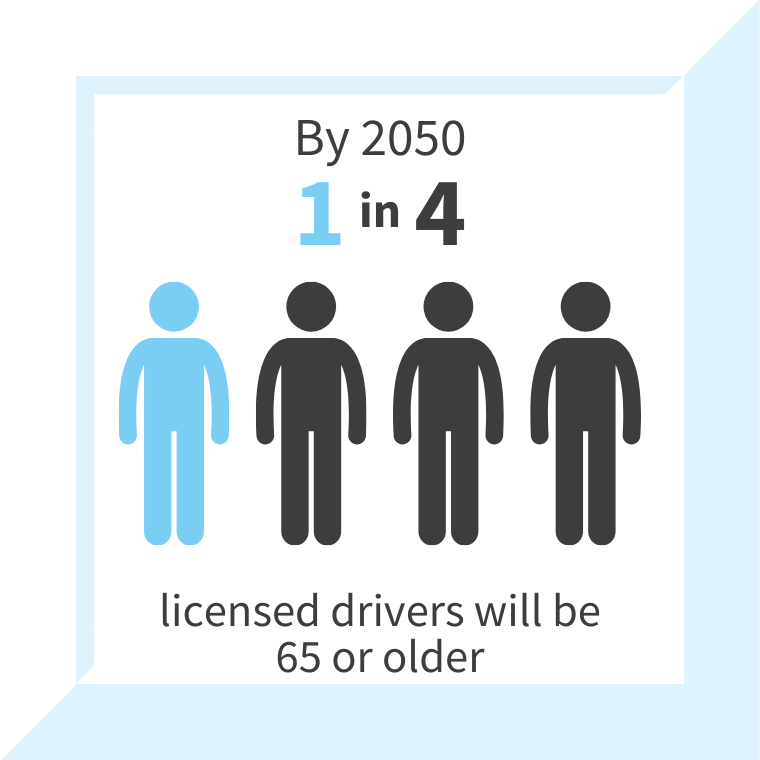Welcome! Under the leadership and direction of Dr. Ganesh M. Babulal, the DRIVES Project is working to understand how preclinical Alzheimer’s disease (AD) impacts driving behavior. Our main area of focus is to examine how older drivers with and without preclinical AD maintain driving abilities.
What is preclinical AD?
A stage of AD in which changes in the brain occur years before symptoms affecting memory, thinking or behavior can be detected by affected individuals or their physicians.
Driving among older adults is a critical and timely public health issue. Thirty-eight million licensed drivers are aged 65 years or older, and the number of older adults in the United States is expected to double by 2050 (88 million), when 1 in 4 drivers will be 65 or older. Motor vehicle crashes are a leading cause of injury and death in older adults.


In 2009, 2.3 million older adult drivers and passengers were treated in emergency rooms for motor vehicle crash injuries. Driving fatalities of adults 55 years and older are higher compared to younger adults. Also, fatalities increase with older adult age, such that risk of death in a crash for drivers 85 years or older is nine-fold greater than it is for drivers 69 years and younger. The ability to identify who will be at most risk of driving decline and to predict when decline will occur will inform early driving safety intervention trials for older adults.
While clinically diagnosed AD is recognized as a major contributor to this risk, our work is leading to recognition that preclinical AD is associated with driving impairment. Our cross-sectional results show that cognitively normal persons with more abnormal AD biomarker values at baseline obtain worse scores on an on-road driving test, and our longitudinal analyses show that AD biomarkers predict time to a road test rating of Marginal or Fail.
Our work is leading to recognition that preclinical AD is associated with driving impairment.
Preclinical AD and early symptomatic AD are important, yet fleeting, stages during which to plan and implement safety measures in anticipation of changes in driving skills with disease progression. This knowledge can be used to create stage-appropriate, personalized, driving-related safety strategies that can be implemented upon diagnosis, and adjusted throughout disease progression.
In addition to driving, our lab is investigating the relationships that preclinical AD has with stress, mood, navigational abilities, visual contrast sensitivity, comorbidities, frailty, and more.
See our publication page for more information about our work »
The DRIVES Lab is situated in the Department of Neurology at Washington University School of Medicine and collaborates closely with the Knight Alzheimer’s Disease Research Center. The work of the DRIVES Lab focuses on cognitive and non-cognitive measures relating to preclinical Alzheimer’s disease.


